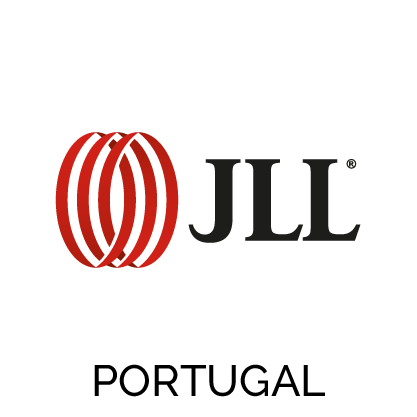The property market slowed down in the first half of the year, interrupting a growth trend that had been observed throughout 2022. This confirms the projections made at the beginning of the year, points out JLL in its latest report analysing the sector's performance, where it highlights the hotel, industrial & logistics and retail segments as the best performers.
According to JLL, the sharp rise in interest rates and the continued shortage of supply available for immediate occupation, at a time when inflationary pressures have eased, but are still felt, are the main factors behind this lower dynamism, a context that has led many companies and investors to put investment decisions on hold until they understand how the economy will evolve in this new cycle.
Foreigners account for more than 80% of investment in the first half of the year
Between January and June, despite the volume of transactions in the pipeline and the continued interest of investors in our country, commercial property investment reached €760 million, a year-on-year drop of 8%. According to the report, more than 60% of this volume was transacted in the 2nd quarter and, in terms of the origin of the investment, foreigners continued to represent more than 80% of the investment in the semester.
Pedro Lancastre, CEO of JLL Portugal, explains that "2023 marked the start of a new economic cycle in Europe, and this is reflected in the property market. There continues to be a lot of liquidity and willingness to invest, and people and companies have not stopped growing and needing to occupy properties, however, conditions have changed and, therefore, these last few months have been times for demand to adapt to adjustments in the macroeconomic context. In any case, the national economy continues to grow, and at a faster pace than estimated, and the property market is also expected to respond in line over the coming months. Our attraction factors have not dissipated and we continue to have a very solid and competitive market at European level".
Tourism consolidates its position as one of the main drivers of economic growth
Data available up to May show year-on-year increases of 25% in the number of tourists and overnight stays, and 33% in the number of passengers disembarking at airports. These results have had an impact on hotel real estate, where average daily rates exceed 2019 values in both Lisbon and Porto, although supply continues to expand at a moderate pace, with 1,089 five-star beds opened in the country.
As for housing, JLL points out that both in the purchase and sale modality and in the rental, access to housing remains under pressure in the Portuguese market: demand far exceeds the available supply and interest rates limit the access of many families to the purchase of housing. In this sense, the number of sales slowed down over the semester, while a substantial growth in rental demand is evident. In this context, both in Lisbon and Porto sales prices remain stabilised, while rents are rising.
Activity in the office market is one of the slowest in the 1st half of the year
With occupancy falling 77% in Lisbon and 17% in Porto, year-on-year, activity in the office market is one of the slowest in the 1st half of 2023, taking as a point of comparison what was the best year ever for the sector. In this market, the shortage of modern supply and the quality levels currently required in the corporate world available for immediate occupation continues to be a drag on activity.
Retail activity, meanwhile, continues to show its resilience in the face of change, evolving positively across virtually all formats, with the shopping centre and high street segments leading the way in terms of rental growth. According to the report, a reorganisation is evident in Lisbon and Porto's street retail, where the different axes concentrate increasingly segmented retail focuses.
As regards the industrial and logistics market, occupancy almost doubled: it reached 308,000 sqm in the 1st half of the year. However, the creation of new supply remains a pressing need in this market, where demand shows no signs of slowing down, thus supporting the reinforcement of investment in the launch of new development projects - currently more than 700,000 sqm are under construction.
"The main reason for the declines in activity reported in the office and residential sectors is mainly related to the lack of supply to meet demand and the caution of consumers and occupiers in the face of economic and interest rate developments. At the same time, the logistics market nearly doubled occupancy levels, while retail rents followed, proving that physical commerce seems to have emerged with renewed strength from the pandemic. Tourism, on the other hand, continues to solidify its position as one of the driving forces of the Portuguese economy, with activity levels that already exceed previous pre-pandemic records", evaluates Joana Fonseca, Head of Strategic Consultancy & Research at JLL.
She adds that "in the case of investment, the first half of the year was marked by a "wait-and-see" or "on-hold" stance by large pan-European institutional investors, who chose to wait to understand how the rise in interest rates would impact the sector in terms of value, and Portugal was not left out. However, the country remains attractive as an investment destination both for institutional capital and for investors with a more opportunistic profile who, however, do not seem to be able to find in our country the type of discounts they aspire to close deals, which once again highlights the resilience of our market ".

